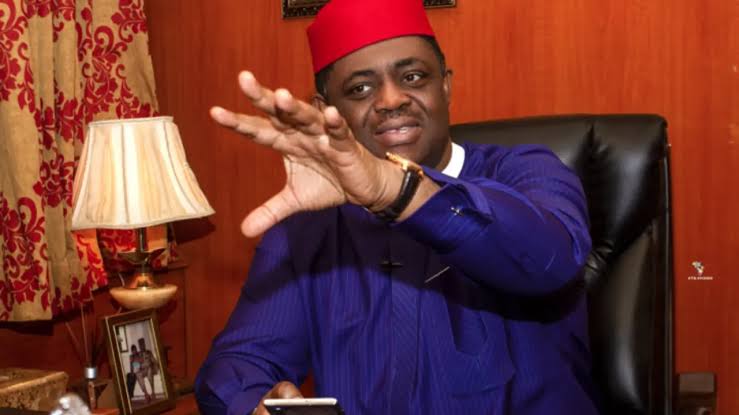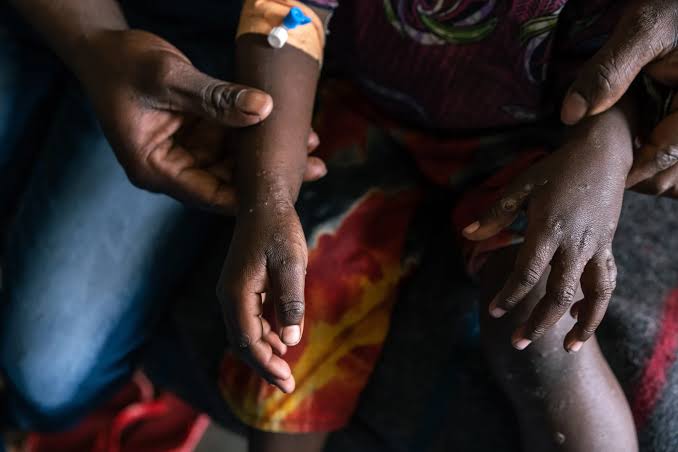Metro
Despite high cost, Nigerians flock to Canada as permanent residency approvals reach 15-month high
Published
6 months agoon
By
Isaac Dachen
A report by the Immigration and Refugee Board (IRB) of Canada has revealed that despite the expensive cost of processing travel documents and flight tickets, more Nigerians are paying millions of naira to be allowed to live and work in Canada for up to five years.
According to the report, between January and June 2023, there were over 1,700 Nigerians seeking asylum in Canada, with the number of approvals of permanent residency reaching a 15-month high, while thousands of others were pending.
The IRB report said the “number of Nigerians with Permanent Residency (PR) status in Canada surged as of May 2024, as over 2,020 Nigerians now call Canada home.”
“Recent monthly figures retrieved from Immigration, Refugees and Citizenship Canada (IRCC) have revealed that this is the largest number of Nigerians Canada has allowed in as PRs at the same time since March 2023, and the number continues to rise,” the IRB said.
“Last month, it was reported that 1,905 Nigerians are permanently residing in Canada as of April, and in the first five months of 2024 alone, there have been over three thousand more people admitted than in the whole year of 2017 and preceding years.”
A PR status grants individuals who are not Canadian citizens the right to live and work in the country for up to five years and serves as an immigration visa, qualifying the holder for most social and healthcare coverage that Canadian citizens are entitled to, including protection under Canadian law.
“Permanent residents can also apply for Canadian citizenship after physically living in Canada for at least 1,095 days or three years within the five years of their status validity.
“As a leader in migrant resettlement globally, Canada has an immigration policy that attracts more talent into its territories. The government is pursuing an ambitious plan to accommodate 500,000 immigrants every year by 2025, as it battles an ageing population and low birth rate which have created gaps in its labour force.
“Canada’s immigration framework prioritises professionals and highly skilled individuals, making it easier for them to obtain work permits and permanent residency, including post-graduation work permits (PGWPs) after completing studies in Canada and the Express Entry system that uses a skill-based point system to grant permanent residency.
“This approach contrasts sharply with other countries, particularly the UK, where restrictive immigration policies pose significant challenges for Nigerians and other international talent.
“With its Home Child Care Provider Pilot and Home Support Worker Pilot programs now expired, Canada launched newer, fast-tracked care pilot programs, with Nigeria as part of its target population. The programs grant professional care workers permanent residency status upon arrival.
“Nigerians who make permanent residency in Canada are usually motivated by job opportunities, refugee protection or student transition programs.
“Of its entire international student population, Nigerians were the fastest-growing, with nearly 18,000 Canadian study permits issued between January to June 2023 and 44 per cent more study permits issued during that period than in full-year 2022.
“The country’s acceptance of refugees as PRs also makes it attractive to Nigerians who flee persecution at home. When refugees resettle in Canada from overseas, they become PRs through the Government-Assisted Refugee Program or the Private Sponsorship of Refugees Program.”
You may like
-


NCAS President confirms Nigerians killed extrajudicially in South Africa in 2024
-


Reports say Libyan authorities have begun mass arrest of Nigerians following CAF verdict
-


Suspects arrested in SA’s brides-for-cash scandal
-


70 Nigerians register for evacuation from Lebanon— Nigerian Community President
-


Some Nigerians trapped in Lebanon have refused to be evacuated – Nigerian govt
-


Nigeria to evacuate citizens from Lebanon as conflict with Israel escalates
Metro
‘Don’t start what you can’t finish’, ex-Nigerian official replies President Tchiani
Published
1 month agoon
December 29, 2024
Former Nigerian Aviation Minister, Femi Fani-Kayode, has told President Abdourahamane Tchiani of Niger Republic to refrain from making infantile and puerile allegations that Nigeria is conniving with France and the Lakurawa terrorists to destabilize his country.
Tchiani had, during an interview with Radio-Télévision du Niger on December 25, accused the Nigerian government of using the sect, with the help of foreign security forces notably from France, to wreck havoc in his country, insinuating that President Bola Tinubu had been paid by the France government to allow their military to establish a base in Borno State.
He also alleged that Nigeria, acting in collaboration with the French government and the terrorist group, was responsible for an attack on the Niger-Benin oil pipeline on December 13, 2024, in Gaya, Dosso Region of Niger Republic.
But in a statement he posted on his official X handle on Sunday, Fani-Kayode who is popularly called FFK, said Nigeria does not need the help of France and thr Lakurawa terrorist to destabilize Niger Republic.
FFK insisted that Nigeria is not part of the western powers sponsoring terrorists organizations to wretch havoc on the West African sub region.
“If Nigeria wanted to destabilise Niger Republic, I do not believe that we would need France or any terrorist organisation to do so,” the politician wrote.
He noted that on the contrary, western powers are the ones behind terrorist organizations operating in the region and other parts of Africa.
“I have maintained that the western powers are behind the terrorist groups that have plagued the West African sub region over the last 15 years and for the last ten years I have publicly stated this and given my reasons.
“I am equally certain that Nigeria, being one of the major victims of these terrorist organisations, has had no part in it and that no Nigerian President, past or present, has indulged in such grave and dangerous actions.”
He went on to advice Tchiani against provoking Nigeria with unguarded and infantile utterances capable of stoking Nigeria against his country.
“The Nigerien Military Head of State, Abdourahamane Tchiani, would do well to be careful not to provoke our wrath with his absurd assertions and remain mindful of the fact that the defence budget for his country, Mali and Burkina Faso COMBINED is not up to 25% of Nigeria’s.
“Tchiani’s grave allegations that President Tinubu and NSA Nuhu Ribadu have been bought by the French to destabilise Niger Republic, that our Government is jointly sponsoring a terrorist group with France to do same and that there are French military bases in Nigeria are infantile, puerile, mendacious and asinine.
“It is a squalid attempt by the Nigerien Head of State to sow the seeds of dissention in our country, to alienate our people from constituted authority, to divide our people and to undermine the Tinubu administration,” he added.
“It is also highly provocative and the FG should consider the possibility of taking other more extreeme measures if this reckless provocation continues.
“We are under no obligation to show restraint when we are being undermined and maligned.
Metro
Zambia announces second case of Mpox as country battles cholera outbreak
Published
1 month agoon
December 28, 2024
The Zambian Ministry of Health has reported a second case of Monkeypox, popularly known as Mpox, in Kitwe region of Copperbelt Province.
Acting Health Minister, Douglas Syakalima, who made the announcement on Friday during a press conference in Lusaka, revealed that the Ministry is intensifying contact tracing and surveillance to curb further spread of the disease.
Syakalima who also addressed the ongoing cholera outbreak in Nakonde, Muchinga Province, said thus far, seven cases have been confirmed.
“The second Mpox case involves a 34-year-old female from Ndeke, Kitwe, who presented with symptoms including rash, fever, swollen lymph nodes, and oral ulcers on December 21,” Syakalima said at the press parley.
He noted that there was an initial misdiagnosis with chickenpox in Lumwana, North-Western Province, but laboratory tests on December 26 confirmed that it was Mpox.
Syakalima added that the patient’s husband, who works in a neighboring country with confirmed Mpox cases, had experienced similar symptoms earlier this month.
“Both patients are now stable and under close monitoring. A rapid response team has been deployed to trace contacts and prevent further spread,” he said, adding that eight close contacts of the couple are currently under observation, while nationwide surveillance has been heightened.
The Health Minister added that on December 26, five cholera cases were confirmed at Nakonde Urban Clinic with the first three patients, a husband, wife, and their son, admitted on December 24 with symptoms of diarrhea, vomiting, dehydration, and shock.
“Today, two more cases have been reported, bringing the total to seven confirmed cholera cases from the same household,” Syakalima stated.
He explained that Nakonde’s location as a border town with high cross-border movement poses a risk for the disease to spread to other parts of the country.
The Minister however, assured that the Ministry has deployed teams to trace contacts, chlorinate water sources, disinfect affected homes, and activate Incident Management Systems at district and provincial levels while surveillance has been heightened, and contact tracing is ongoing for 33 individuals.
“The government remains committed to preventing further spread of these diseases,” Syakalima assured.
EDITOR’S PICK


Nigeria: Marketers predict further price cut as another refinery begins operations
Oil marketers and the Nigerian Midstream and Downstream Petroleum Regulatory Authority expect refined petroleum product prices to reduce as another...


Kenya: Consumer inflation rises to 3.0% from 2.8%
Kenya’s statistics agency said on Tuesday that Kenya’s consumer price inflation increased slightly to 3.0% year-over-year in December from 2.8%...


South Africa’s Transnet’s half-year deficit hits $117m
Transnet, a state-owned logistics company in South Africa, announced on Tuesday that it had lost 2.2 billion rand ($117.48 million)...


Nigeria, China extend $2bn currency swap deal
A 15 billion yuan ($2 billion) currency-swap arrangement between China and Nigeria has been extended to boost investment and commerce...


Egypt’s central bank maintains overnight rates
As anticipated, Egypt’s central bank has maintained its overnight interest rates, stating that although inflation was predicted to drop significantly...


Illicit flows cost Nigeria, others $1.6bn daily— AfDB
According to the African Development Bank (AfDB), illicit money flows and profit shifting by multinational corporations doing business in Africa...


‘Don’t start what you can’t finish’, ex-Nigerian official replies President Tchiani
Former Nigerian Aviation Minister, Femi Fani-Kayode, has told President Abdourahamane Tchiani of Niger Republic to refrain from making infantile and...


Again, Starlink raises prices of its services in Nigeria
Elon Musk’s satellite internet service provider, Starlink, has again jacked up the prices of its services in Nigeria after an...


Former President of Moroccan club Raja sentenced to 3 years in prison
The former President of Moroccan top club, Raja Casablanca, Mohamed Aouzal, has been sentenced to three and a half years...


Zambia announces second case of Mpox as country battles cholera outbreak
The Zambian Ministry of Health has reported a second case of Monkeypox, popularly known as Mpox, in Kitwe region of...


